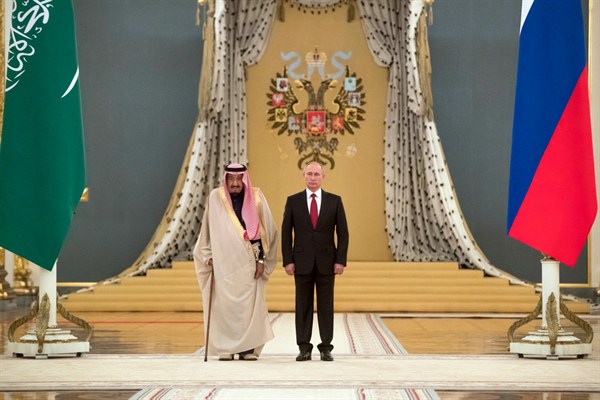Editor’s note: Guest columnist Nikolas Gvosdev is filling in for Steven Metz, who will return next week.
“You can’t surge trust.” That was the constant refrain of Gen. James Amos, commandant of the U.S. Marine Corps from 2010 to 2014, whenever he offered advice for U.S. policymakers about the Middle East. Unfortunately, the people who took his advice closest to heart have been the Russians.
It is reflected in President Vladimir Putin’s recent visit to Ankara to confer with Turkish President Recep Tayyip Erdogan and the historic arrival of King Salman of Saudi Arabia to Moscow for talks this week. Two of America’s closest allies in the Middle East are engaging in close coordination on regional issues with Russia. As they lose faith in America’s ability to provide solutions, they are gauging whether Russia’s efforts may be more beneficial.

